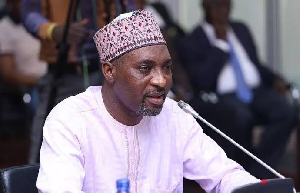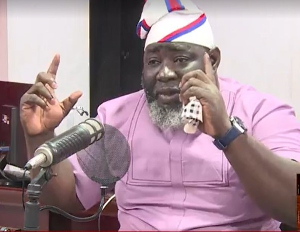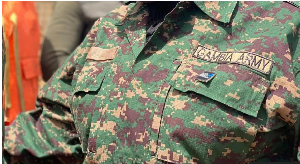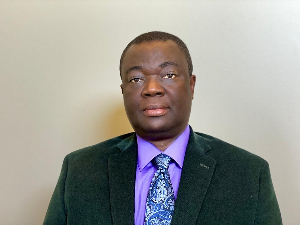Mira360 Blog of Wednesday, 11 December 2024
Source: Malik Samira
Parliament's work could be derailed and made more difficult if we are not careful—Mubarak Muntaka

Mubarak Muntaka, the Member of Parliament (MP) for the Asawase Constituency, has expressed worries about the possible effects of the new standing orders of Parliament, which were enacted in January of this year, stating that they may encourage pointless political assaults within the House, according to Starr FM. The seasoned legislator voiced his concerns about the state of Parliament right now and the potential impact of standing orders on the standard of oversight and governance.
Speaking on the subject, Muntaka pointed out that the new standing orders, which gave the minority significant influence, including control over the Assurance Committee, and increased the number of standing committees, could unintentionally be used for political scheming instead of beneficial governance. He expressed his worry that the atmosphere in the House has grown more hostile and that legislative instruments may be used more as a political point-scoring tool than as a means of conducting effective oversight.
The MPs would say, "This is the committee that we can use to cause havoc," rather than, "This is a committee that we can use to demand more oversight, making sure things are done," Muntaka said, raising doubts about whether the contentious atmosphere would be helpful to us. Additionally, he cautioned that if the standing orders are not effectively administered, Parliament may become a venue for political "ping pong," in which parties engage in retaliatory strategies rather than fruitful discussion.
The minority now has a lot of influence because to the new standing orders of Parliament, which were created to improve parliamentary effectiveness and guarantee more inclusive participation. More standing committees have been added as a result of these modifications, and the minority now controls some important panels, such as the Assurance Committee, which has the authority to examine government expenditures and commitments.
But Muntaka emphasized that tensions could be made worse by the House's tight margins of authority. He issued a warning that if the current climate continues, Parliament may become mired in political strife, which would make it challenging to fulfill its monitoring and legislative duties. He also underlined the importance of stability, especially in the case of a change of administration, pointing out that smoother legislative operations would require a resounding victory like to the overwhelmingly comfortable majority that President Nana Addo obtained in 2017.
Muntaka warned that this might worsen the situation and undermine Parliament's work if we are not attentive.














